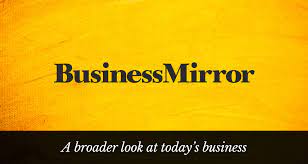 This is my article in the 30 November 2011 edition of the Business Mirror.
This is my article in the 30 November 2011 edition of the Business Mirror.
THE events of the past week have focused attention on one of the critical functions of the Commission on Elections: the prosecution of electoral offenses. While some would argue for a leaner Comelec that occupies itself exclusively with the administration of elections, there is a lot to be said for giving Comelec the power to run after cheats. After all, without the ability to protect the integrity of elections from those who would make a mockery of them, Comelec would not be able to adequately fulfill its core mandate of ensuring clean and honest polls.
However, it would be unfortunate if the recent emphasis on the prosecutorial authority of Comelec were allowed to overshadow its other equally significant role as innovator. Under the law, Comelec is empowered to continually seek means to improve the electoral system.
Before 2010, the most prominent exercise of that power was Comelec’s relentless drive toward the automation of the elections. Faced with the pernicious evil of dagdag-bawas (and all its variations), Comelec set out to ensure that a modern system of counting and canvassing votes would be put in place to minimize the human intervention that was identified as the electoral system’s greatest vulnerability.
With last year’s automated national and local elections, Comelec took a giant stride forward to the achievement of that goal.
Now, with 2013 drawing ever closer, the challenge for Comelec is to up the ante. Many will agree that the implementation of the automated election system in 2010 leaves some room for improvement. To a certain extent, there is still a gap between what Comelec has already achieved and what it ultimately aims to secure: an accurate and credible automated election system universally accepted and embraced. The new Comelec Advisory Council represents the bridge that will close that gap. As CAC Chairman Louis Napoleon Casambre put it, the council will ensure that “the elections are accurate and the citizens can exercise their right to vote as easily as possible.”
***
Despite having moved significantly toward completely de-fanging dagdag-bawas, automation admittedly, leaves some evils yet to be addressed, such as vote-buying and election violence. For this, Comelec needs to build another bridge; this time, to reach out to the single most potent force for the renewal of the electoral system: the youth.
Thus, on the first of December, Comelec and the University of the Philippines College of Mass Communications will hold a forum focusing on ways and means to harness youth participation for people empowerment, beginning with voter registration all the way through to responsible voting.
This forum will be just the first of many slated for the period leading up to the elections in 2013. In many ways, it may well turn out to be an excellent preview for a much larger conference already being planned for the coming year.
In 2007 Comelec took its first tentative steps toward using the Internet for voter education. Now, less than half a decade later, the online world has all but left old Internet paradigms behind. Static web sites now pale in significance compared to the hyper dynamic world of the social media, and Comelec cannot afford to be left behind.
To that end, Comelec aims to bring netizens together for a conference, in the early part of 2012, to discuss the potential of the social media to bridge the gap between the voter and the information he needs to ensure his intelligent and principled participation in the country’s revitalized electoral system.
***
Last Friday, even as dramatic events unfolded in Pasay City, an equally important milestone was reached in windy Tagaytay. On that day, the world-renowned BRIDGE Program awarded full accreditation to Comelec Law Department Director Esmeralda Ladra, the first Filipino to receive that distinction.
BRIDGE is an acronym for Building Resources in Democracy, Governance and Elections. It is a modular professional development program that focuses on elections and electoral processes. It was started in 1999 when electoral experts from around the world gathered in Australia and identified everything which, in hindsight, they wished they had known when they first started working on elections.
Since then, BRIDGE facilitators—acknowledged experts in the field—have gone around the world promoting internationally accepted principles of democracy and good electoral practice; enhancing the skills and confidence of stakeholders in the electoral process; increasing the awareness of tolls and resources available for building and maintaining a sustainable electoral culture; developing a support network for stakeholders in electoral process, and encouraging a culture of sharing information and experiences. And now, one of our very own will be part of that program, recently cited by the United Nations as one of the best in the field of democracy and governance.

